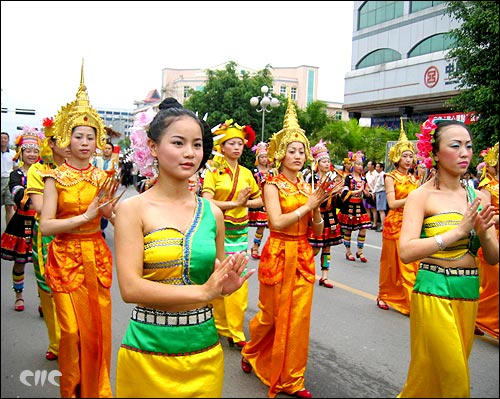- Joined
- Mar 28, 2009
- Messages
- 1,482
- Points
- 0
Re: BANGKOK: More than 100K at 9pm. Many More Coming. JAMS 50km Long. ArbiSHIT SHITTI
flashback...
Abhisit Vejjajiva, economic nationalist | 20.12.05
With a twist. The Democrat Party leader favors local businesses, as long as they are not connected to people in the government:
“ให้(ต่างชาติ) เลือกทำธุรกิจได้แทบทุกอย่างไม่เว้นแม้แต่ความมั่นคง ยกเว้นเรื่องเดียวที่รัฐบาลไม่เปิดโอกาสให้เข้ามาคือโทรคมนาคม”
“[The government] lets (foreigners) choose to do business in almost everything, not excepting even national security, [but] except the only one thing [industry] that the government doesn’t allow them to come in, that is telecommunication.”
Never mind that:
Norway’s Telenor ASA now owns 61% of UCOM and 48% of DTAC. The latter, as Thailand’s second largest mobile phone operator, competes directly and fiercely with Shin Corp’s AIS.
AIS, the industry leader, is 19% owned by Singapore’s Singtel.
The Thaksin government raised the ceiling on foreign telecom stakes from 25% to 49% back in 2002 and it was attacked for that, too (just as it had been when the limit was first promulgated — it’s all about enriching the Shinawatra family).
Telecommunication has always been one of the most protected industries in Thailand, just like, I believe, in many other countries.
Did someone say national security? Telecommunication has no security dimension, I suppose, not like real weapons and military hardware, which we have always imported.
The gall of this man. He must think his audience really stupid. Of course he’s right, but that doesn’t make it any less disgusting.
But, but, but Abhisit is the PM now, right ?
flashback...
Abhisit Vejjajiva, economic nationalist | 20.12.05
With a twist. The Democrat Party leader favors local businesses, as long as they are not connected to people in the government:
“ให้(ต่างชาติ) เลือกทำธุรกิจได้แทบทุกอย่างไม่เว้นแม้แต่ความมั่นคง ยกเว้นเรื่องเดียวที่รัฐบาลไม่เปิดโอกาสให้เข้ามาคือโทรคมนาคม”
“[The government] lets (foreigners) choose to do business in almost everything, not excepting even national security, [but] except the only one thing [industry] that the government doesn’t allow them to come in, that is telecommunication.”
Never mind that:
Norway’s Telenor ASA now owns 61% of UCOM and 48% of DTAC. The latter, as Thailand’s second largest mobile phone operator, competes directly and fiercely with Shin Corp’s AIS.
AIS, the industry leader, is 19% owned by Singapore’s Singtel.
The Thaksin government raised the ceiling on foreign telecom stakes from 25% to 49% back in 2002 and it was attacked for that, too (just as it had been when the limit was first promulgated — it’s all about enriching the Shinawatra family).
Telecommunication has always been one of the most protected industries in Thailand, just like, I believe, in many other countries.
Did someone say national security? Telecommunication has no security dimension, I suppose, not like real weapons and military hardware, which we have always imported.
The gall of this man. He must think his audience really stupid. Of course he’s right, but that doesn’t make it any less disgusting.
But, but, but Abhisit is the PM now, right ?






































